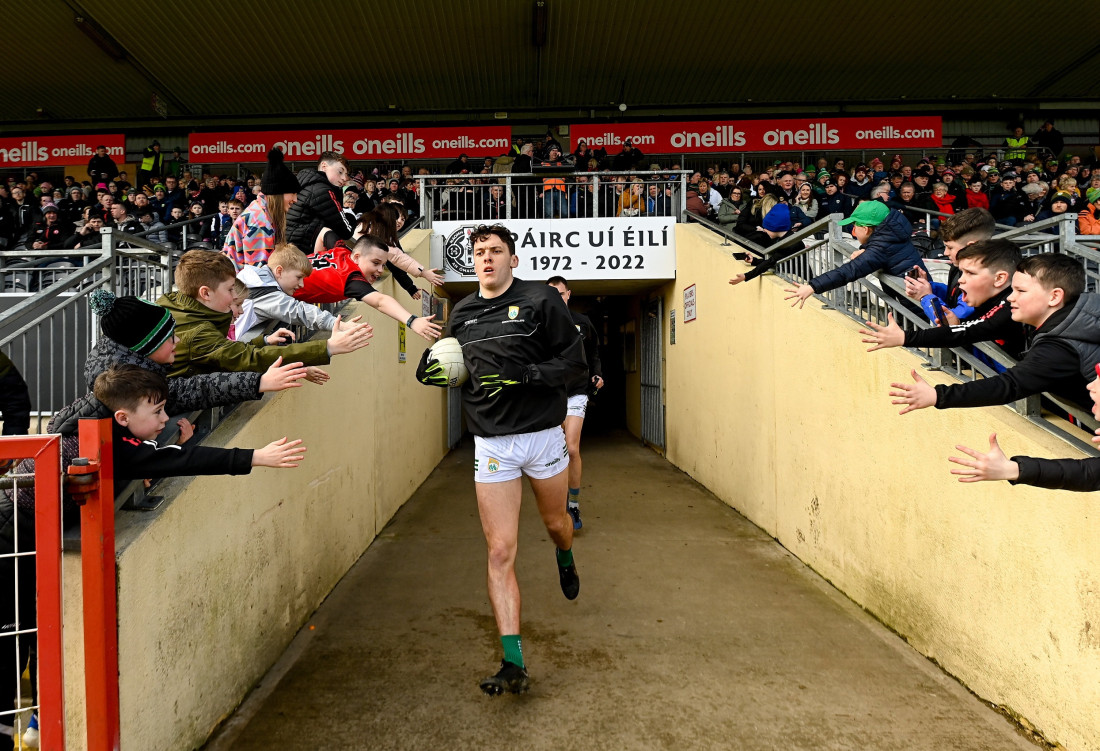A MODERN coach/manager has finally broken ranks to say what we are all thinking. This week, Professor Niall Moyna, a state of the art expert who has managed DCU to four Sigerson Cups, was a selector and advisor to the St Vincent’s All-Ireland winning club team of 2008 and an integral part of Pat Gilroy’s Dublin football revolution, said, “Modern Gaelic football is probably the most boring game in the world to watch.”
Think about that. A game that once thrilled us, that made our hair stand on end, a game of collisions and contests and epic one v one battles, is now more boring than curling. More boring than croquet. More boring than…baseball.
The legendary American author Michael Lewis (The Blindside, Moneyball, The Big Short, Flash Boys) came into our Free State studio last year for a most entertaining hour. We were discussing how boring baseball is and the problem they are having with slumping attendances. He told us that he was asked by the Baseball Commissioner to come up with an idea to make the game more exciting. He said, “I thought about it for a while and I wrote back to him. I suggested introducing a lion onto the pitch during the games. Not a tame zoo lion, but a wild savannah one.” He said that he wrote, ” Every now and again, it will eat one of the players. The crowds will go wild. Problem solved.”
On the evening of the All-Ireland final, I had a drink with Peter Aiken, the music promoter and his good friend Bob Doyle, the legendary Nashville music impresario and manager of Garth Brooks. It was Bob’s first ever Gaelic football match. “What did you think of it?” I asked him. “It was a wonderfully exciting occasion,” he said, “apart from the game.”
The two problems destroying the spectacle are firstly that the team in possession can kill the game by playing keep ball using the goalkeeper. In my column last week, I solved this problem with a simple, easily policed rule that the goalkeeper cannot take a pass from an outfield player. (Do not forget that the ‘keeper outfielder was only developed to try to covercome the zonal defence.) The second and most damaging problem is the sweeper/zonal defensive system that makes it impossible to get early ball to the dangerous attackers and/or for those dangerous attackers to get possession in a place where they can score or attack the goals.
The Football Review Committee proposal to deal with this does not deal with it at all. It is this: ‘Both teams must keep a minimum of three players (not including the goalkeeper) inside the 65-metre line when the ball is in the other half of the pitch.’ Galway, for example, already do this, leaving them with 11 outfield players taking up position inside their own 45 to create one of the game’s most formidable zonal defences. Like Armagh, they are almost impossible to score a goal against. Three games in the Connacht championship – No goals conceded. Three games in the group stage – One goal conceded. In the knockout phase they played Monaghan (last 16), Dublin (quarter final), Donegal (semi-final) without conceding a goal. In the final, they gave up one chance, an out of the blue opportunity that resulted in the Armagh full back palming the ball to the net.
Three players inside the 65 sounds attractive. The problem is it only sounds attractive. It still means a full time sweeper in the kill zone around the goals. it still means eleven outfield players forming an eleven man defence inside the 45. It does precisely nothing to solve the problem.
My solution, on the other hand, is a solution, worked out after endless debates with football people including Enda Gormley, the mastermind behind the Watty Graham’s revolution. Critically, it is simple and easily policed. My proposal is this:
1. The defensive team must man mark inside the 45 metre attacking arc (which is going to be created anyway for Jim Gavin’s two points for a point idea) until the ball crosses over the boundary line of the arc.
2. The defensive team is allowed to start with a maximum of two defenders inside that arc, whether the attacking team has a player in there or not. This prevents a scenario where, for example, Kerry send David Clifford in there one v one, keep everyone else out and kick to him from the edge of the arc. In practice, the attacking team will send two attackers (let’s say Con O’Callaghan and Paul Mannion) in there at which point the two defenders must pick them up. This leaves us with a starting point of two v two inside the danger zone.
3. The attacking team can send as many players as they like into their attacking arc, but they can only be man marked by the defensive team before the ball crosses over the boundary line of the arc. So, for example, if they send in a third attacker to station himself on the 40, a third defender can man mark him.
4. Once the ball crosses the boundary line, the defending team can do whatever they like, just as we used to in the old days. They can drop off, double up, whatever. If the attacking team have the ball inside the arc and pass the ball outside the arc, the rule does not apply i.e. the rule only applies to the first phase of the attack.
This rule is simple, but transformative. It bans the sweeper system that has ruined the spectacle and the players’ enjoyment. (The linesmen will already be policing whether a point has been kicked from outside the two point line, so they can easily police this as well. I suggest the linesmen be moved to inside the arcs on either side as proper assistant referees, leaving volunteers to do the line.)
The rule means that the ball can be moved quickly to a two man full forward line, with no sweeper stopping that quick ball and no swarm of zonal defenders (Armagh, for example, play with four zonal defenders between the 21 and the notional 40). It means that the attacking team can play football the way it is supposed to be played. Quick ball in to the danger men, with half forwards breaking through off their shoulders. There is no time to set up a zonal defence. By the time a full forward has the ball in the danger zone, it is too late for a sweeper. With this simple rule, we will see things we haven’t seen for a decade: man to man contests, goals, proper man marking. As Niall Moyna said this week that “there isn’t much need for individual defensive work now with so many men behind the ball.” All the rule does is prevent a sweeper or a zonal defence forming. All it does is restore the game to what it used to be, maybe even improves it.
The morning it hit me (after an entire night thinking about it) I rang Enda, an arch cynic. He rang me back the following day and said, “Brolly, that might just work.” I said to him, “Can you find a flaw in it?” He said, “I can’t.”
If the Football Review Committee misses this opportunity, we will have to consider introducing a lion onto the pitch, which will be exciting, but may throw up some health and safety challenges.
Receive quality journalism wherever you are, on any device. Keep up to date from the comfort of your own home with a digital subscription.
Any time | Any place | Anywhere














